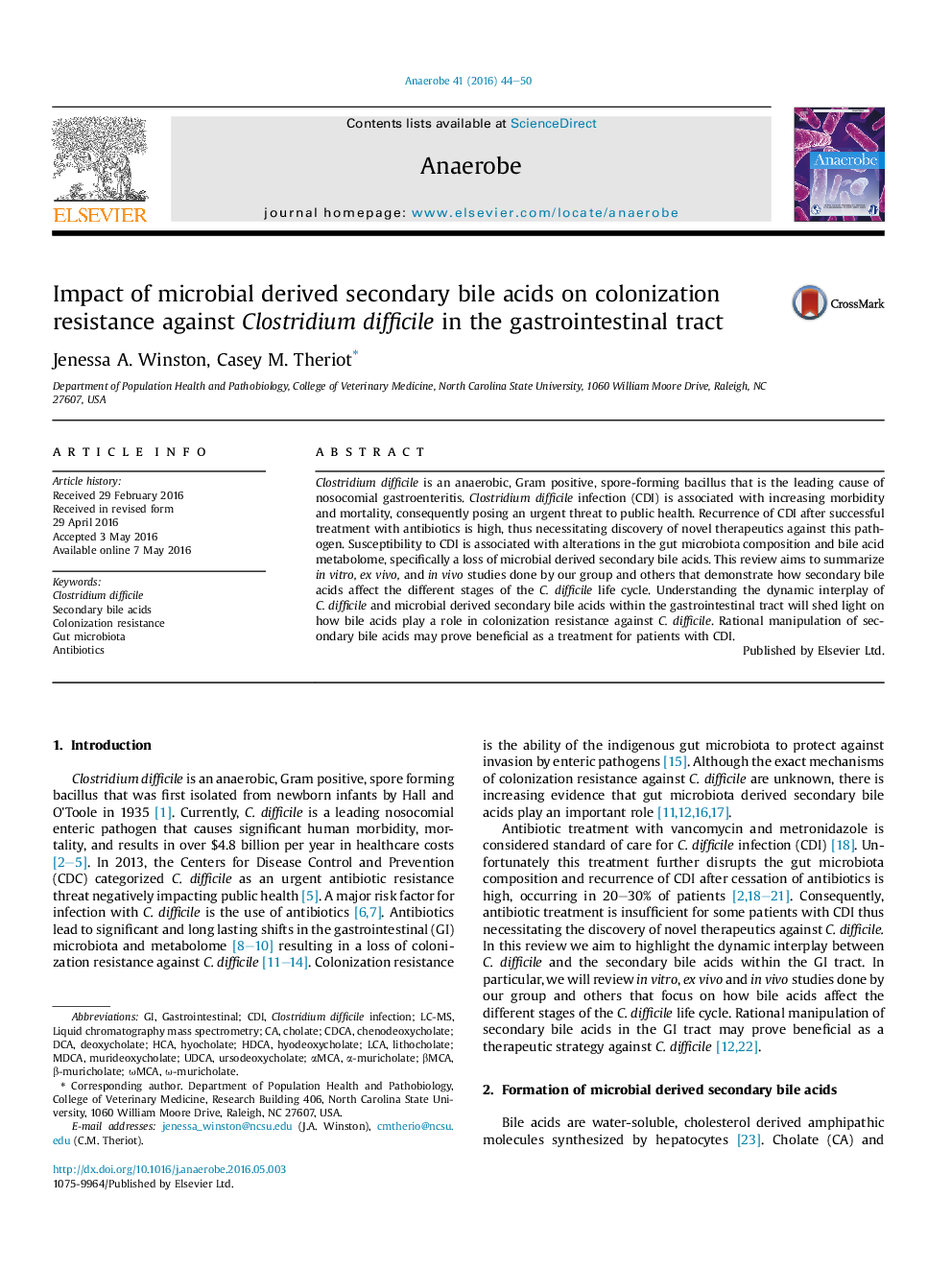| Article ID | Journal | Published Year | Pages | File Type |
|---|---|---|---|---|
| 5671255 | Anaerobe | 2016 | 7 Pages |
â¢Production of bile acids (BAs) is a collaborative effort by the host (primary BAs) and the gut microbiota (secondary BAs).â¢Bile acids play an important and dynamic role in the Clostridium difficile life cycle.â¢Loss of microbial derived secondary bile acids are associated with a loss of colonization resistance against C. difficile.
Clostridium difficile is an anaerobic, Gram positive, spore-forming bacillus that is the leading cause of nosocomial gastroenteritis. Clostridium difficile infection (CDI) is associated with increasing morbidity and mortality, consequently posing an urgent threat to public health. Recurrence of CDI after successful treatment with antibiotics is high, thus necessitating discovery of novel therapeutics against this pathogen. Susceptibility to CDI is associated with alterations in the gut microbiota composition and bile acid metabolome, specifically a loss of microbial derived secondary bile acids. This review aims to summarize in vitro, ex vivo, and in vivo studies done by our group and others that demonstrate how secondary bile acids affect the different stages of the C. difficile life cycle. Understanding the dynamic interplay of C. difficile and microbial derived secondary bile acids within the gastrointestinal tract will shed light on how bile acids play a role in colonization resistance against C. difficile. Rational manipulation of secondary bile acids may prove beneficial as a treatment for patients with CDI.
Graphical abstractDownload full-size image
